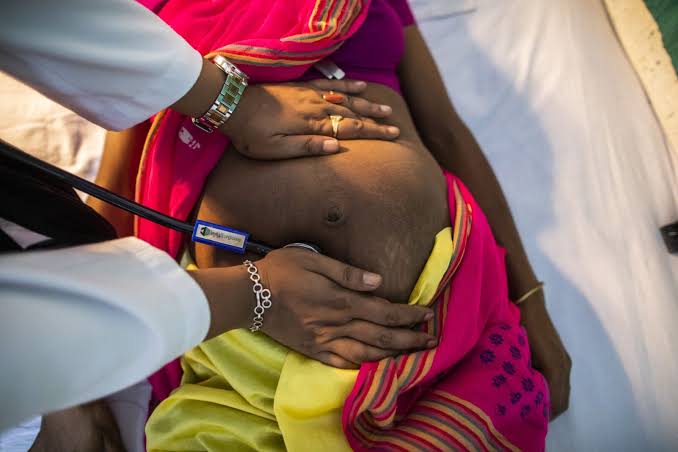Nigeria accounts for 20% of global maternal deaths – WHO
Story from Hamzat Ibrahim
Nigeria accounts for nearly 20% of global maternal deaths, with northern states bearing the highest burden, according to a new study by the World Health Organization (WHO).
The research, published in The Lancet Global Health, highlights the leading causes of maternal mortality, including severe bleeding during childbirth, hypertensive disorders like preeclampsia, infections, unsafe abortions, and complications from prolonged labour.
WHO’s findings reveal that in 2020 alone, an estimated 287,000 women worldwide died due to pregnancy-related complications, with sub-Saharan Africa contributing a significant portion of these deaths.
In Nigeria, maternal mortality rates remain alarmingly high, particularly in rural and underserved communities, where access to quality healthcare is severely limited.
Northern Nigeria continues to face one of the world’s worst maternal mortality crises, with states such as Kano, Sokoto, Zamfara, Jigawa, and Yobe recording over 1,000 deaths per 100,000 live births—far exceeding the national average of 512 per 100,000 live births.
Dr. Pascale Allotey, WHO’s Director of Sexual and Reproductive Health and Research, stressed that most maternal deaths are preventable with timely medical intervention and better healthcare services.
She urged African governments, including Nigeria, to strengthen maternity care by improving antenatal services, ensuring skilled birth attendance, and expanding emergency obstetric care.
In Nigeria, poor healthcare infrastructure, a shortage of medical personnel, financial constraints, and cultural barriers continue to limit access to essential maternal health services. Many women, particularly in rural areas, give birth at home without trained healthcare providers, increasing the risk of complications and death.
READ ALSO: FG trains 60 health workers in Borno on maternal, infant nutrition
A lack of awareness about conditions like preeclampsia further delays life-saving medical intervention. WHO scientist Dr. Jenny Cresswell, a co-author of the study, pointed out that preeclampsia can lead to severe bleeding and other life-threatening complications long after childbirth, underscoring the need for a holistic approach to maternal healthcare.
The WHO study emphasised the importance of postnatal care, noting that most maternal deaths occur during or shortly after childbirth. However, in Nigeria and other African countries, many women do not receive follow-up care in the critical days after delivery, increasing the risk of preventable complications.
To address this crisis, WHO and its partners launched a global initiative in 2024 to combat postpartum haemorrhage, one of the leading causes of maternal death. The campaign aims to improve access to life-saving treatments, particularly in low-resource settings like Nigeria.
As part of ongoing global efforts, the 194 member states of the World Health Assembly recently passed a resolution committing to strengthening maternal and newborn healthcare services.
WHO has also announced that World Health Day 2025 will focus on maternal and newborn health, calling for urgent improvements in healthcare access across Africa’s most vulnerable regions.
The campaign will not only highlight the need to reduce maternal deaths but also advocate for better postnatal care, mental health support, and quality reproductive health services for Nigerian women.
Follow the Neptune Prime channel on WhatsApp:
Do you have breaking news, interview request, opinion, suggestion, or want your event covered? Email us at neptuneprime2233@gmail.com





